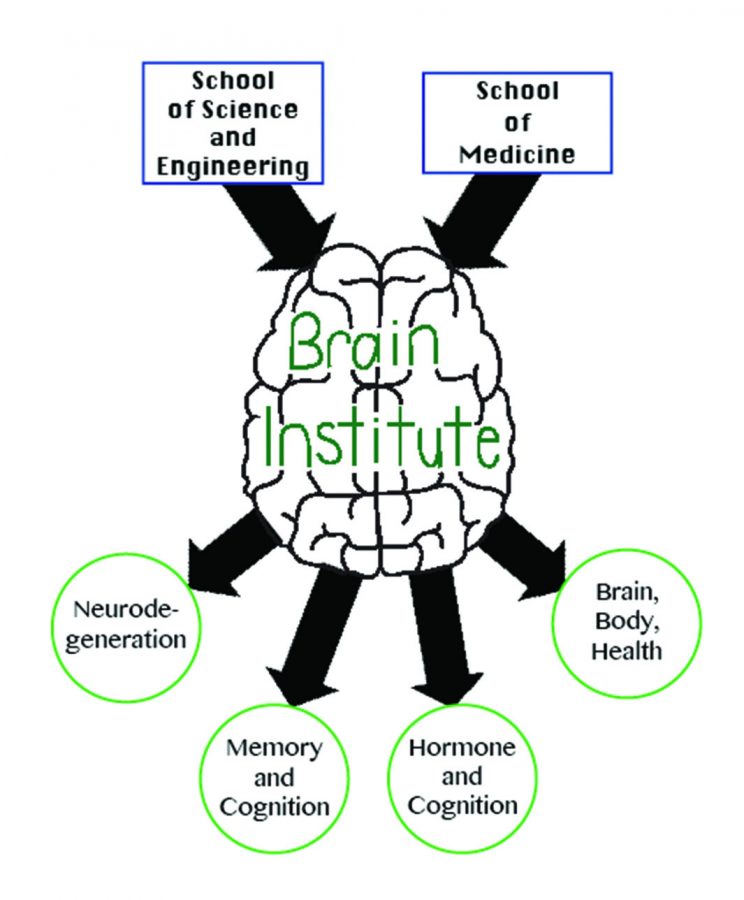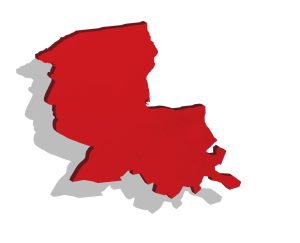Tulane alumni helps fund new Brain Institute on campus
April 13, 2016
The A.B. Freeman School of Business’ donations may have the greatest on-campus effect, with its modular buildings on Monroe Hall’s quad, but they are not the only school at Tulane getting an upgrade.
Alumnus Bill Marko and his wife Marta Marko made a gift to the university to launch the Brain Institute, an initiative between the School of Science and Engineering and the School of Medicine, to create the physical and intellectual infrastructure needed to advance Tulane’s neuroscience research and programs. The dollar amount of the donation has not been made publicly available.
“I think this will allow us to build on our very strong research program,” psychology professor and Brain Institute Director Jill Daniels said. “As well as build on our very strong education and training programs, build on the individual faculty accomplishments, and to be seen as an entity.”
Bill Marko studied mechanical engineering at Tulane University and now serves on the board of the School of Science and Engineering. Both New Orleans natives, Bill and Marta Marko were looking for a way to invest in Tulane as well as make a difference in memory and aging research. Marta Marko’s parents both have been diagnosed with Alzheimer’s disease.
The idea for the initiative first came in 2014 at a neuroscience faculty meeting. The group discussed the strengths of Tulane’s neuroscience program, and decided they wanted to build intellectual and physical hubs of research.
This is where the Markos’ donation comes in.
Part of the donation will go to converting the second floor of Flower Hall into administrative offices and a research hub for memory and cognition labs. It will also go to the Marko Spark Innovation Research Fund for brain research across the university. The remainder of the gift will go towards providing support for the Brain Institute’s Research Cluster on Memory and Cognition.
The Brain Institute will include several areas of research. One is the neurodegeneration theme, which looks at neural repair and diseases such as Alzheimer’s and Multiple sclerosis. Memory and cognition themes will have labs on the second floor of Flower Hall, including the hormone and cognition theme and the brain-body-health theme, which examines the relationship between the brain and the nervous system.
The Brain Institute will be multidisciplinary. Faculty from across the School of Science and Engineering and the School of Medicine will collaborate on research. This will include not only neuroscientists, but also engineers, cellular and molecular scientists, and physicians.
“The Brain Institute recognizes the wonderful collaborations we’ve had among faculty at all the campuses,” said Beth Wee, associate dean of undergraduate programs in the School of Science and Engineering. “It will encompass the training programs for students, but also focuses on the research being done at Tulane and enhances the research for faculty and students.”
The Brain Institute augments the already strong undergraduate neuroscience program. Study.com ranked it as one of the 12 top neuroscience programs in the country, alongside universities like Columbia University and Brown University. The website cited the ample research and internship opportunities within the university’s lab and medical schools as strengths of the program.
The funds of the Brain Institute will work to better the experience for undergraduate neuroscience students by hiring and retaining accomplished faculty who will teach the students and work with them on research opportunities. The additional lab space will also provide more spots for students interested in getting experience in neuroscience research.
Daniels also hoped that the Brain Institute will help attract students to Tulane that are looking to study at a well-respected school for neuroscience.
“After following Tulane a little bit, I found out that [neuroscience] was a really good program and that it was up-and-coming,” freshman neuroscience major Claire Mersereau said. “It has a lot of career opportunities, even if you aren’t pre-med because there’s so many different jobs that are developing right now. No longer do you just have to be in research; you could also be in marketing … research or medical studies because understanding people’s behavior is becoming more crucial.”










Leave a Comment